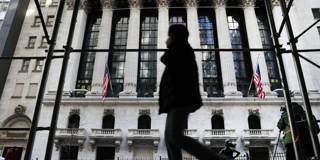Heightened global economic risks mean that many poorer countries could take years to return to their pre-pandemic growth trajectories. And if higher inflation leads the US Federal Reserve to raise rates somewhat sooner than it currently plans, emerging markets will be hit particularly hard.
CAMBRIDGE – Economic recovery, like COVID-19 vaccines, will not be evenly distributed around the world over the coming two years. Despite enormous policy support provided by governments and central banks, the economic risks remain profound, and not just to frontier economies facing imminent debt problems and low-income countries experiencing an alarming rise in poverty. With the coronavirus far from tamed, populism rife, global debt at record levels, and policy normalization likely to be uneven, the situation remains precarious.
This is not to deny the overall good news of the last 12 months. Effective vaccines have become available in record time, far sooner than most experts originally anticipated. The massive monetary and fiscal response has built a bridge toward a much-hoped-for end to the pandemic. And the public has gotten better at living with the virus, with or without the help of national authorities.
But although growth outcomes around the world have been vastly better than most expected in the early days of the pandemic, the current recession is still catastrophic. The International Monetary Fund forecasts that the United States and Japan will not return to pre-pandemic output levels until the second half of this year. The eurozone and the United Kingdom, again declining, won’t reach that point until well into 2022.

CAMBRIDGE – Economic recovery, like COVID-19 vaccines, will not be evenly distributed around the world over the coming two years. Despite enormous policy support provided by governments and central banks, the economic risks remain profound, and not just to frontier economies facing imminent debt problems and low-income countries experiencing an alarming rise in poverty. With the coronavirus far from tamed, populism rife, global debt at record levels, and policy normalization likely to be uneven, the situation remains precarious.
This is not to deny the overall good news of the last 12 months. Effective vaccines have become available in record time, far sooner than most experts originally anticipated. The massive monetary and fiscal response has built a bridge toward a much-hoped-for end to the pandemic. And the public has gotten better at living with the virus, with or without the help of national authorities.
But although growth outcomes around the world have been vastly better than most expected in the early days of the pandemic, the current recession is still catastrophic. The International Monetary Fund forecasts that the United States and Japan will not return to pre-pandemic output levels until the second half of this year. The eurozone and the United Kingdom, again declining, won’t reach that point until well into 2022.